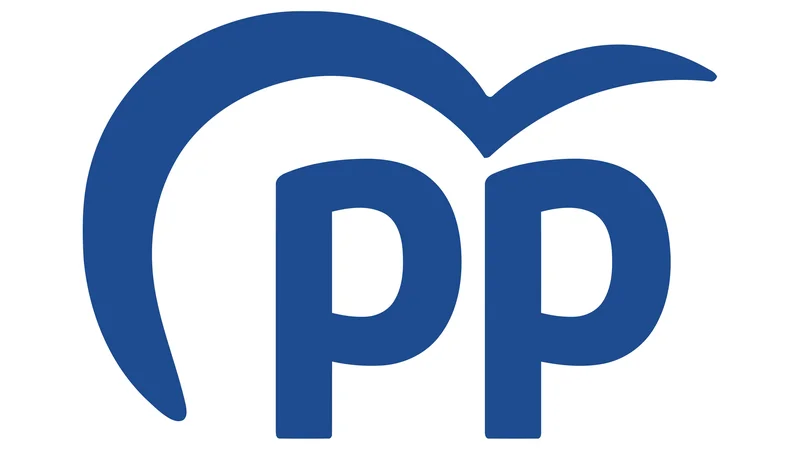The "PP" Acronym: Decoding Its Meaning in Industry vs. Internet Slang
Generated Title: PureCycle's European Gambit: More Marketing Than Material?
On the surface, the announcement from PureCycle Technologies looks like a straightforward operational win. The Orlando-based company, which has developed a novel solvent-based process for recycling polypropylene (PP), has secured REACH certification (PureCycle gains European import permission for recycled PP). This allows them to import their recycled PP resin from their Ohio plant into the European Union. For a company with global ambitions, market access is everything.
But a closer look at the data—and, more importantly, the corporate messaging surrounding it—reveals a significant discrepancy. This isn't a story about opening the logistical floodgates. In fact, the company’s own CEO, Dustin Olson, was quick to pour cold water on that idea. Speaking from the floor of the K 2025 plastics trade show in Düsseldorf, surrounded by the low hum of industrial ambition, Olson stated that shipping large amounts of recycled PP plastic from Ohio to Europe is "not a sustainable business model."
So, if it’s not a sustainable supply chain solution, what is it? Why go through the considerable regulatory effort to gain market access you don’t intend to use at scale? The answer lies not in logistics, but in capital strategy. This move isn't about shipping plastic; it's about de-risking a massive future investment.
The Anatomy of a "Pre-Marketing" Play
Olson himself provided the key, framing the imports as a "pre-marketing" effort for the company's planned production facility in Antwerp, Belgium. Let’s deconstruct that term. "Pre-marketing" in this context is a calculated maneuver to seed a market before you have the local infrastructure to serve it. The goal is to generate demand, secure early-stage customer commitments, and validate your product in a new regulatory environment.

PureCycle is essentially running a very expensive, very public beta test. By shipping its PureFive resin to European customers now, it can get the material into the hands of the very companies it needs to sign long-term offtake agreements with later. These are not trivial trials. The fact sheet notes work with major equipment makers like Brückner Group, testing the resin on industrial-scale extruders. This generates crucial performance data and, more importantly, buy-in from key players in the European packaging and manufacturing ecosystem.
This strategy is like a film studio spending millions on a Super Bowl trailer for a blockbuster that won't be released for two years. The goal isn't to sell tickets today. It's to build overwhelming anticipation and lock in distribution deals, ensuring that when the final product is ready, the entire market is primed and waiting. What is the alternative? Spending hundreds of millions on a plant (a significant capital expenditure in any environment) and only then finding out if European customers truly value your specific grade of recycled pp material. That’s a risk few boards or investors would be willing to take. The timeline for this project is still several years out—to be more exact, the Antwerp plant is targeting a 2028 operational start. This early-stage seeding is critical.
A Calculus of Risk and Capital
And this is the part of the report that I find genuinely puzzling if viewed through a purely operational lens, but perfectly clear when viewed through a financial one. The cost of shipping recycled resin across the Atlantic is substantial. When you factor in freight, tariffs, and handling, the margins on that US-produced, EU-sold product must be razor-thin, if they exist at all. Olson admits as much, noting they have "plenty of customers in the United States." The decision to allocate any portion of their Ohio output to Europe is, therefore, a deliberate hit to short-term profitability.
Why would a company do that? Because the value of the data they receive in return is worth more than the margin on the plastic itself. Every successful trial with a European partner, every preliminary order, every positive piece of feedback is a data point that lowers the risk profile of the Antwerp project. When PureCycle’s executives go to their lenders and shareholders to finance the construction of the Belgian plant (a facility that will be significantly larger than their initial Ohio site), they won’t just be presenting a business plan built on projections. They will have a portfolio of existing European customer relationships and proven product-market fit.
This isn't an isolated strategy. The company is simultaneously redesigning its planned Augusta, Georgia, facility for a much larger capacity and has plans for Asia. This is the playbook of a company in a global race to scale a capital-intensive technology. The EU REACH certification isn't the finish line; it's the firing of the starting pistol for the European leg of that race. The actual shipments of PP plastic are almost incidental. They are the physical tokens in a much larger game of financial validation. Can they prove the market exists before they pour the concrete? And will that proof be compelling enough to secure the next, much larger, round of funding?
A Bridge Built of Data, Not Resin
Ultimately, the narrative that PureCycle is "opening the door to Europe" is misleading. It's more precise to say they are building a temporary, expensive, and strategically vital bridge. This bridge isn't designed to carry the full weight of Europe's demand for recycled polypropylene. It's designed to carry data—customer validation, performance metrics, and signed letters of intent—from the European market back to the company's financiers and board of directors in Orlando. The real product being shipped across the Atlantic isn't the PureFive resin. It's confidence.
Tags: pp
The Investment Outlook for 2025: A Sober Look at Your Best Low-Risk and Alternative Options
Next PostSocial Security Reverses Paper Check Elimination Plan: Why the Policy Shifted and What It Means for Beneficiaries
Related Articles
